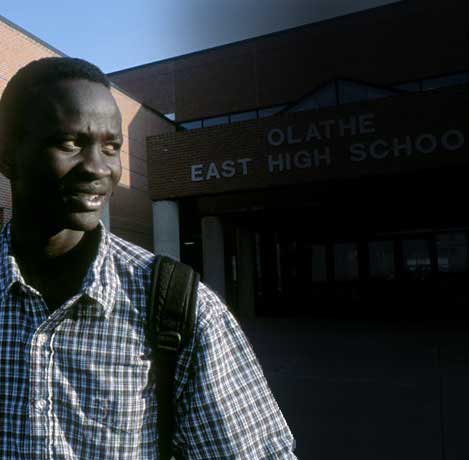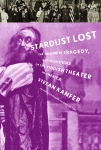the pain is weaknessThis sign seemed exceptional to me, and not just for its philosophical bent (most of the signs were more to the effect of "Run Fred Run!"). It also illustrated the importance of phrasing - separated, those two lines could be interpreted as meaning "You are in pain, therefore you are weak... and you are about to die." Of course, read as a single thought, as intended, it means the exact opposite.
leaving the body
What's true of homemade marathon signs is even more true for music: the ways you connect phrases can drastically change the character and meaning. Last week my former teacher Don Palma was in town to give lessons, and I played the Bach 3rd Suite Bourrees for him. The 3rd Suite was one of the pieces I played on my undergraduate senior recital at New England Conservatory, so he'd obviously heard me play the piece before. Still, I've been living and auditioning on it for several years since then, and gone through lots of frustrations, successes and uncertainties with it. I could seriously write a book all about the evolution of my attitudes and relationship to the Bach Bourrees, not that anyone would want to read it!
Returning to the lesson though, Don had one simple, obvious comment: it was too slow. Like a lot of bass players, I strive to play Bach as cleanly and gracefully as a cellist, but often don't play them quite as fast. Not that any cellist would play these pieces absolutely metronomically, but here are my approximations of the tempos on some recordings I own:
Pieter Wispelwey: 70-76The point isn't to copy anyone's tempo, but this does give a range of tempos that can work. Anything much faster or slower tends to distort the character, leaving phrases broken into incoherent fragments - and transforming the whole message of the piece - the difference between "I'm stronger than ever!" or "I'm about to die!" I'm not sure if running faster would have made my half marathon less painful, since I'm still recovering from a hamstring injury. Don Palma's faster tempo definitely made my Bach less painful though, both to play and to listen.
Yo-Yo Ma: 74-76
Anner Bylsma: 78-82









